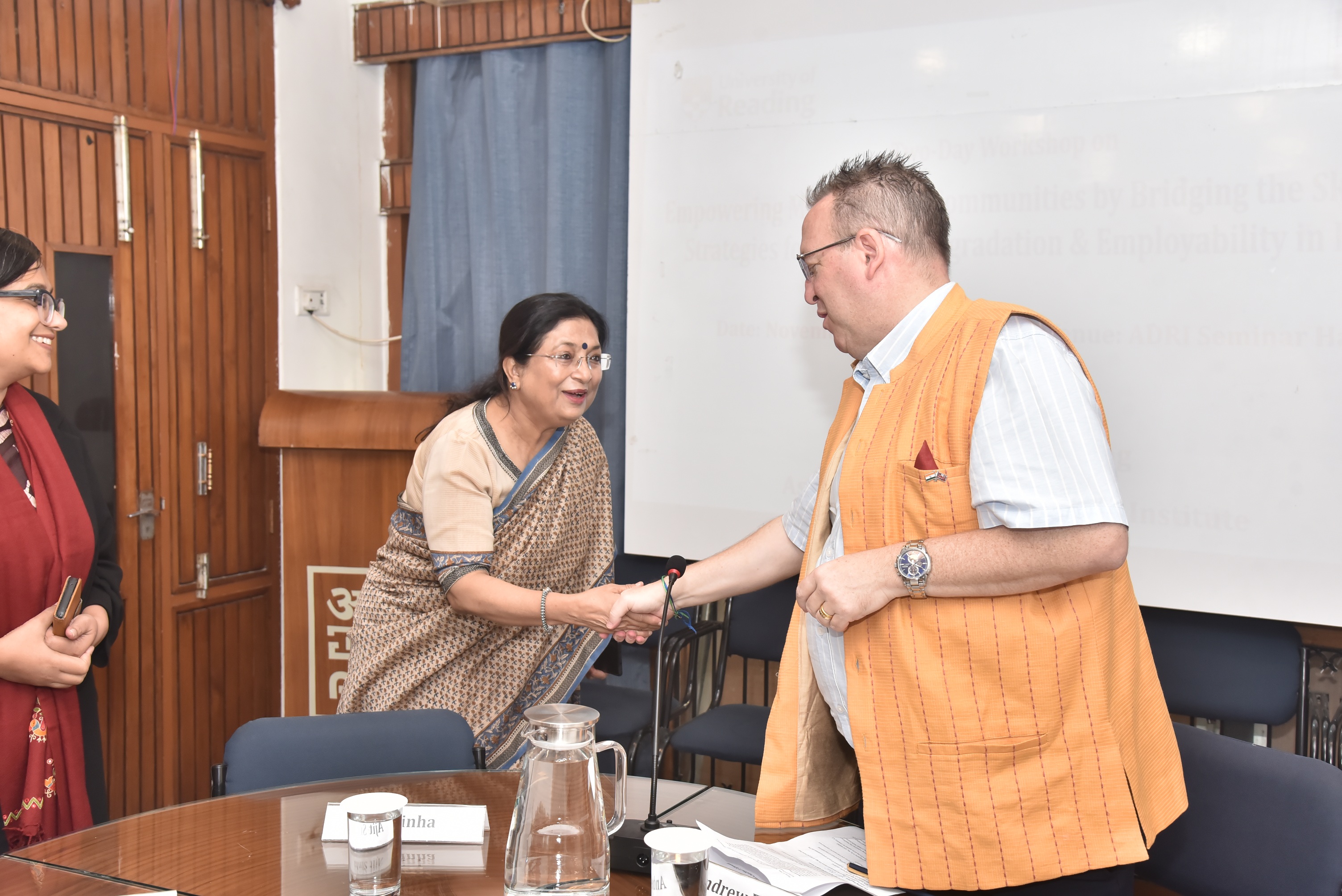Events of ADRI Patna

Labor market rigidities in India present significant barriers to employment, particularly for marginalized communities. These rigidities, including limited mobility, lack of market-relevant skills, and entrenched social hierarchies, are even more pronounced in underdeveloped states like Bihar. As one of the most economically challenged regions in India, Bihar faces a pressing need to improve the employability of its workforce. Traditional skill development programs, while well-intentioned, often fail to adapt to evolving labor market conditions, resulting in a mismatch between the skills imparted and the actual demands of the job market. This gap undermines the effectiveness of such programs and limits their long-term impact on poverty reduction and economic growth.
Patna, November 29. A two-day workshop titled “Empowering Marginalized Communities by Bridging the Skills Gap: Strategies for Inclusive Upgradation & Employability in Bihar” commenced today. It has been jointly organized by the University of Reading in the United Kingdom and Asian Development Research Institute (ADRI).
Dr. Andrew Fleming, the British Deputy High Commissioner to East & North-East India and the Guest of Honour pointed out that 58 % of Bihar’s population is under 25 years and there is no reason why it cannot taste economic success. In order to do that, he said that understanding Machine Learning (ML) and Artificial Intelligence (AI) will be key. They will be the right skills to possess for the future. IIM-Bengaluru Professor Ritwik Banerjee’s presentation on “Does Teachers’ Caste Bias Affect Students’ Mental Health: Evidence from Bihar, India” highlighted the pressing and critically important need to measure the mental health status of children in Bihar as well as in India. He said that prevalence of mental illness is high among school children in Bihar and teachers have an important role to play in it.
Earlier, Professor Ajit Sinha, Director, ADRI, while delivering the Welcome Address, brought up the fact that technology is changing rapidly these days and obsolescence comes quickly. So, we have to work towards protecting our areas of work. Setting the context of the workshop, Member-Secretary of ADRI Dr. Ashmita Gupta mentioned that occupational rigidities exist in the labour market and skill development prorammes need to be targeted to address these gaps.
The inaugural session was followed by two technical sessions. The workshop was attended by academicians, researchers, policy makers, and civil society members from India and abroad. A Vote of Thanks was proposed by Dr. Gupta.
To address this issue, a new wave of startups is emerging, aiming to bridge the gap between traditional skill development initiatives and the rapidly changing market landscape. These startups are leveraging innovative approaches, such as digital platforms and sector-specific training modules, to provide marginalized communities with skills that align with emerging job markets. However, to truly optimize these efforts, it is essential to use advanced research techniques to predict which occupations will thrive in the coming years and how skill development programs can be realigned accordingly. This workshop will bring together academic researchers, industry leaders, and policymakers to explore the intersection of labor market trends, skill development, and emerging occupations in Bihar. By incorporating evidence-based insights and data-driven methodologies, we aim to design adaptive and future-proof skilling programs that empower marginalized communities and foster sustainable economic development in Bihar.